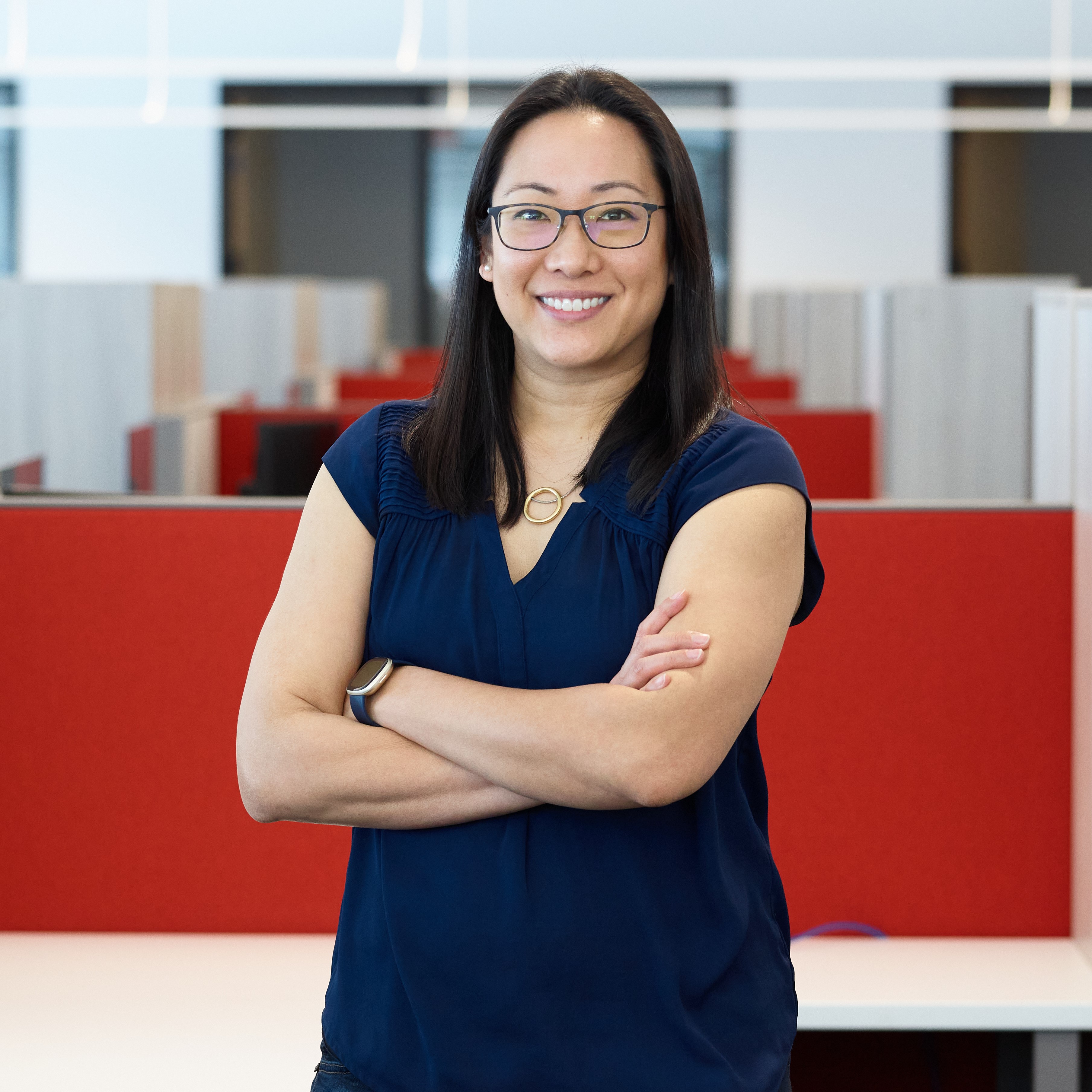

Our People
Celebrating Women & Girls in Science
As we celebrate International Day of Women & Girls in Science this February 11th, hear from Laura Tan, Principal Scientist at Alkermes as she reflects on her own career journey and the importance of creating opportunities for women and girls to choose a career in the sciences.
Tell us about yourself – where are you from, what is your background and what kind of work do you do at Alkermes?
I’m Laura Tan, Ph.D. I’m a Principal Scientist, Biology at Alkermes and am originally from Mississauga, Ontario, Canada. I completed all my undergrad and graduate work at the University of Toronto and my postdoctoral studies at the Salk Institute in La Jolla, CA. My research areas of focus are related to stress and how it affects various circuits within the brain. I started with Alkermes as a Senior Scientist in 2017, where I built a team of researchers to visualize how different parts of the brain respond to potential new therapies.
What encouraged you early in life and your academic career to pursue a career in STEM?
As a child, I was intensely curious and influenced by my father, an engineer, who absolutely loves spending time outside in every season of the year. He strongly believes that being outside helps children (and adults) develop and maintain a sense of inquisitiveness and, to this day, continues encouraging me to explore the woods, poke around at shells and fossils on the beach, and try to understand how these complex systems that surround us work. As I entered my undergraduate education, that curiosity drew me towards neurobiology, where I was fascinated about how single hormones can create diverse and complex responses in the brain. I loved, and still love being outside for the same reason I love biology: it can be a visual experience and there are patterns everywhere. In the same way you can map a constellation of stars in the sky, you can look at neurons under a microscope. A tree in a forest and a neuron under the microscope look very similar, it’s just a matter of scale.
Who were your role models? Did you have any women in your life or in society that you look to as an example on how to be successful as a woman in a traditionally male-dominated field?
I met my first mentor during my graduate work. She is a leading researcher in the field of behavioral pharmacology and psychiatry and was one of my two principal investigators in my graduate program. She is an incredibly dynamic, gifted and hardworking scientist who also happened to be a working mother. Her example and guidance, both in the lab and outside of the lab showed me that although I was working in a traditionally male-dominated field that there was a place for me to grow and thrive.
Can you talk about why it’s important that young women and girls see themselves as future leaders in the STEM field? How did you begin to see yourself as a leader?
A former mentee recently told me that the presence of female leaders above her at Alkermes was one of the most motivating and important factors in her continued career growth. Their hard work and example meant that she had a “blueprint” of sorts and knew that growth within her organization was not only possible, but expected of someone with her knowledge and capability. In my own career, I’ve always gravitated towards leadership opportunities – both in my professional life and outside of work. One important realization that I had was that deciding to lead was not a one-time decision, but rather a series of small “yesses” along the way. Saying “yes” to the opportunity to take on a new project, lead a small team, expand my role and many other seemingly insignificant but important milestones.
What does Alkermes’ commitment to diversity, inclusion and belonging mean to you as a leader?
I’m very proud of our work to date but recognize that there is always more we can do to ensure every voice is heard and that everyone, regardless of their background, feels able to bring their whole selves to work. We realize that as a pure-play neuroscience company that seeks to develop medicines to treat complex diseases in the neuroscience field, diversity is uniquely important and good for business. Not only do we benefit from hearing the perspectives of people who have traditionally not been involved in decision-making, but many of the disease areas in which we operate affect groups of people differently. Part of my responsibility as a scientist is working to ensure our research, from beginning to end, accurately reflects and accounts for the diversity of sex, cultures, and other important characteristics that may influence how certain diseases manifest.
Related Stories

Celebrating Women & Girls in Science
Laura Tan reflects on her career journey and the importance of creating opportunities for women in STEM.

Honoring Diversity at Alkermes as We Further Our Work in Neuroscience
Renato Chiarella on the importance of embedding diversity, inclusion and belonging into our R&D work.

Last updated: February 2024
